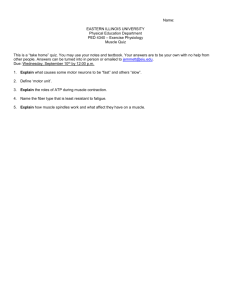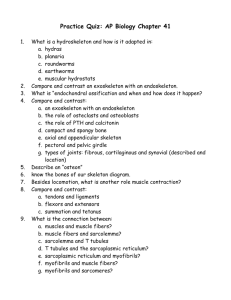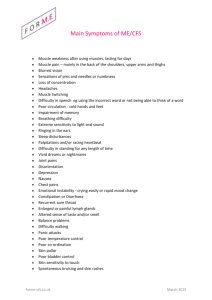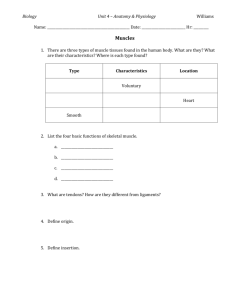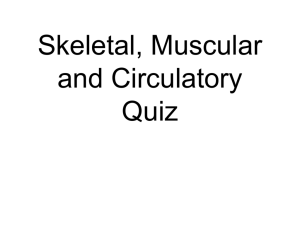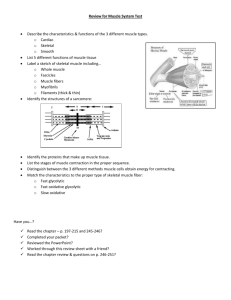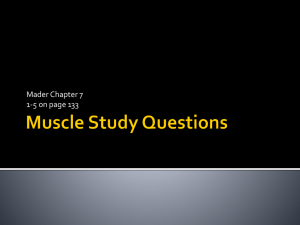Muscle Lecture 1
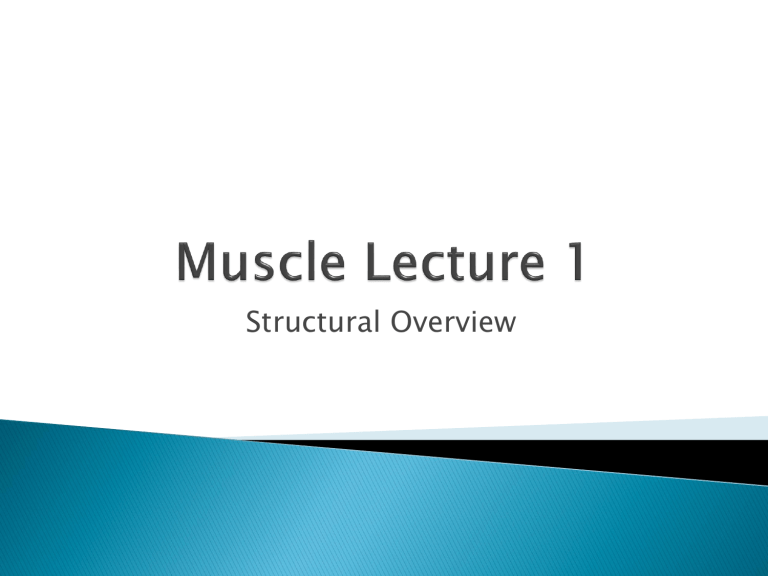
Structural Overview
excitability - responds to stimuli (e.g., nervous impulses) contractility - able to shorten in length extensibility - stretches when pulled elasticity - tends to return to original shape & length after contraction or extension
motion maintenance of posture heat production
skeletal:
◦ attached to bones & moves skeleton
◦ also called striated muscle (because of its appearance under the microscope)
◦ voluntary muscle
Smooth:
◦ involuntary muscle
◦ muscle of the viscera (e.g., in walls of blood vessels, intestine, & other 'hollow' structures and organs in the body) cardiac:
◦ muscle of the heart
◦ involuntary
Skeletal muscles -> tendons (connective tissue)
Epimysium - Ensheaths the entire muscle
Skeletal muscles ->numerous subunits or bundles called fasicles (or fascicles).
Perimysium – Connective tissue surrounding
Fascicles
Endomysium – Ensheath muscle cells.
Muscle cells -> Consist of many fibrils (or myofibrils).
Myofibrils – Composed of myofilaments.
Myofilaments – Thick & Thin myofilaments
SARCOLEMMA has holes.
Holes -> TRANSVERSE TUBULES (or T-
TUBULES)
T-Tubules -> Muscle cell and go around the
MYOFIBRILS.
T-Tubules - DO NOT open into the interior of the muscle cell.
Function of T-TUBULES -> Conducts impulses from the surface down to
Sarcoplasmic Reticulum.
SR - like ER, hollow
Primary Function – Store Calcium Ions
Associated with the MYOFIBRILS
Ca "pumps" (active transport) for calcium so that calcium is constantly being "pumped" into the SR from the cytoplasm.
Relaxed muscle - high concentration of Ca in SR/ Low in Sarcoplasm
Impulse travels along the membrane of the SR, the calcium "gates" open &, therefore, calcium diffuses rapidly out of the SR & into the sarcoplasm where the myofibrils & myofilaments are located.
Key step in muscle contraction.
http://people.eku.edu/ritchisong/RITCHISO/30
1notes3.htm
